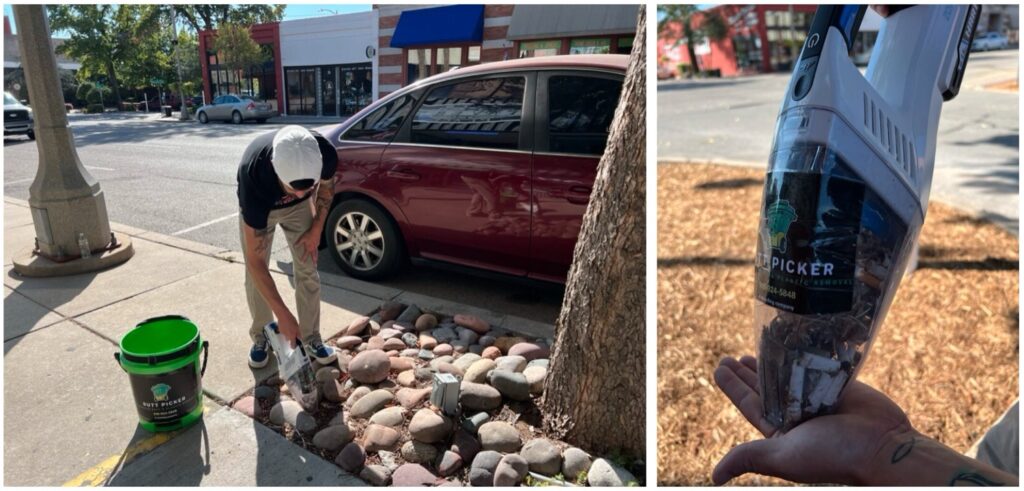According to studies, there are 4.5 trillion cigarette butts disposed of each year. These filtered butts are found so often, that most people in an urban area have become blind to them in most settings. Despite all the laws on the books regarding smoke-free areas and the rise of alternatives like vaping and e-cigarettes, cigarette butts continue to be the most littered item on the entire planet.
One local man, Nick Waltrip, has started a business to try to combat the ubiquity of cigarette butts in Sapulpa. Waltrip said he started his business to make a use out of what most people consider a common nuisance.
Until the 1950s, cigarettes didn’t have filters. Then, as reports began to emerge linking smoking to diseases like lung cancer, cigarette manufacturers began to add filters to their cigarettes as a way to reduce some of the toxins in their products. While studies have shown that filters can be effective in reducing the intake of some toxins, they mostly just make it easier to inhale, and thus use up and sell more cigarettes. The downside is that a large percentage of almost every full cigarette is essentially a piece of garbage that takes 8 to 10 years to begin to break down.
Ask the average person what a cigarette filter is made of, and you’ll usually be told standard cotton. In reality, they’re primarily made up of cellulose acetate, a type of plastic material that can be used for a number of other uses, including stuffing for cushions and stuffed animals, and bug repellant.
The movement to recycle discarded cigarette butts has been picking up steam across the world, particularly in third-world countries, where a lack of regulations means more people—even children—smoke, and thus, more butts are carelessly tossed. In India, a company called Code Effort has employed people to collect and process the 7 million cigarette butts a month into reusable materials that can be resold as products or manufacturing resources for other companies.
In the United States, one of the more prominent names in cigarette filter recycling is called TerraCycle, located in Trenton, New Jersey. TerraCycle found ways to recycle the particles that cigarette butts are made up of by combining them with other materials and creating things like lumber, shipping palettes, park tables and benches, and ironically, ashtrays.
Meanwhile, back in Sapulpa, Oklahoma, Nick Waltrip is taking on the burden of reducing the amount of butts found on the sidewalks and streets of this and nearby cities. It’s a burden he shoulders quite literally, as he demonstrates his process of vacuuming up the cigarette butts with a small vacuum he calls his “butt-buster” and then pours the contents into a 5-gallon bucket with the Butt Picker branding.
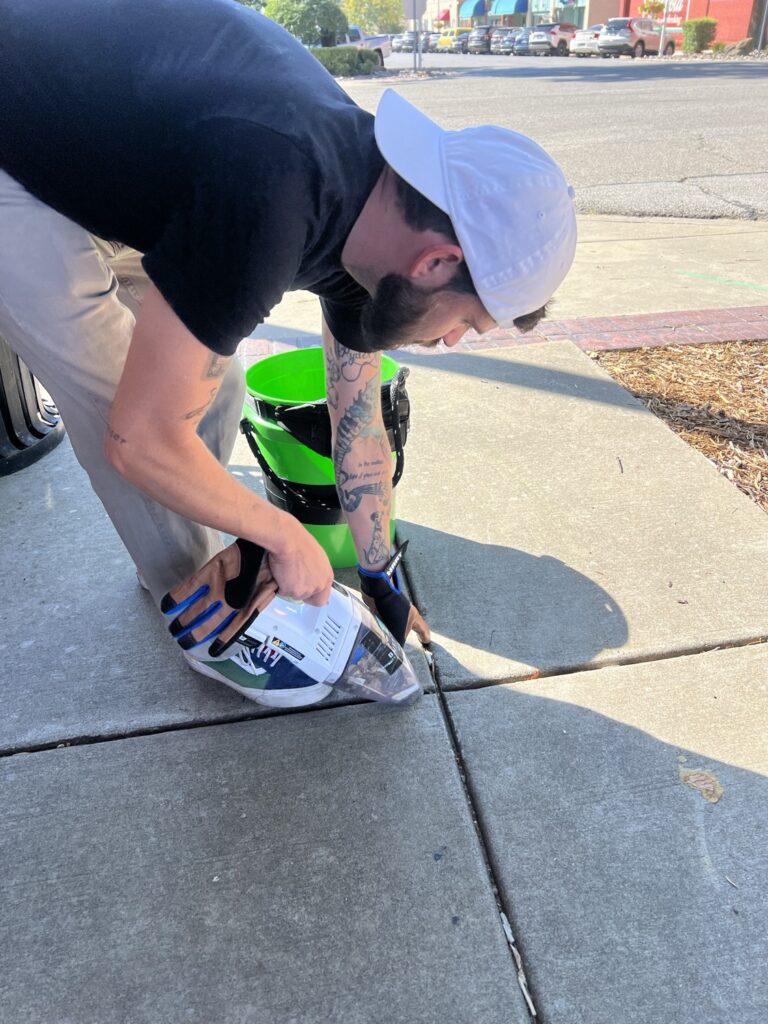
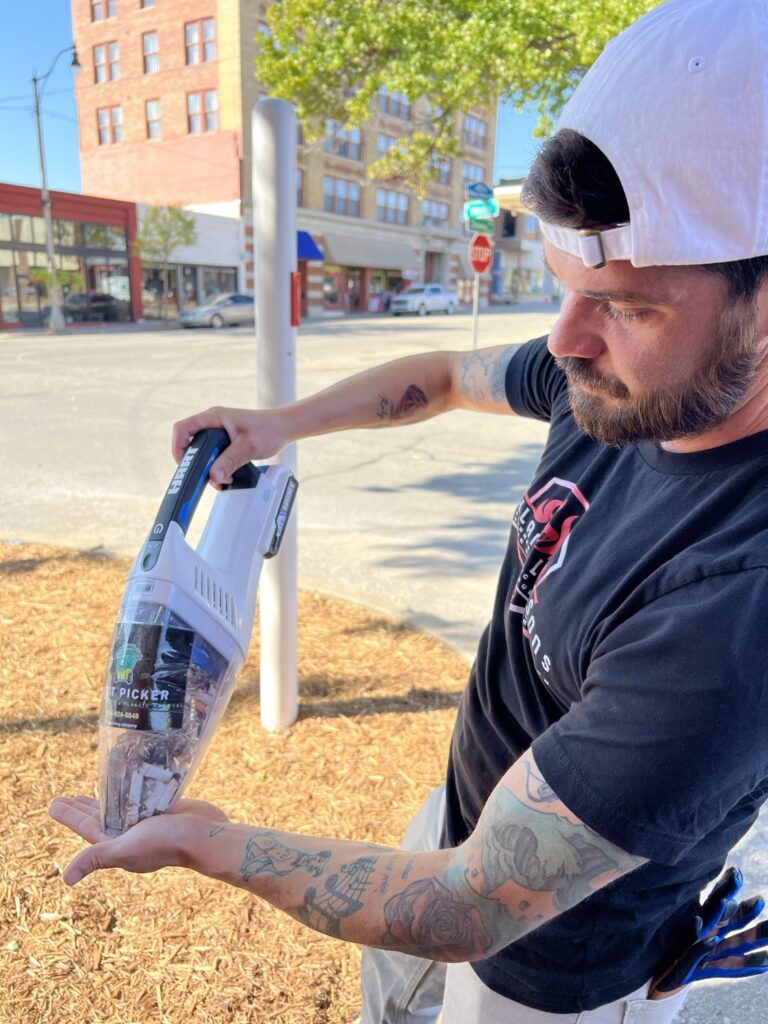
For Waltrip, his mission to reduce waste was partly a way to spend his free time, but also some penance for his former lifestyle as a smoker.
“I can see what I call a ‘flick ring’—you show me a door or place where people congregate to smoke, you’ll see a semi-circle of butts from people flicking them out into the street or whatever. And I used to be part of that,” he said.
Waltrip charges a small fee to businesses that want to have him out once a month to pick up cigarette butt litter. During a demonstration of his services, Waltrip took Sapulpa Times to a local business that denied needing his services. Not three feet from their front door, we watched as Waltrip vacuumed up a dozen or more butts out of rock bed in the sidewalk. “They just don’t see it,” he said.
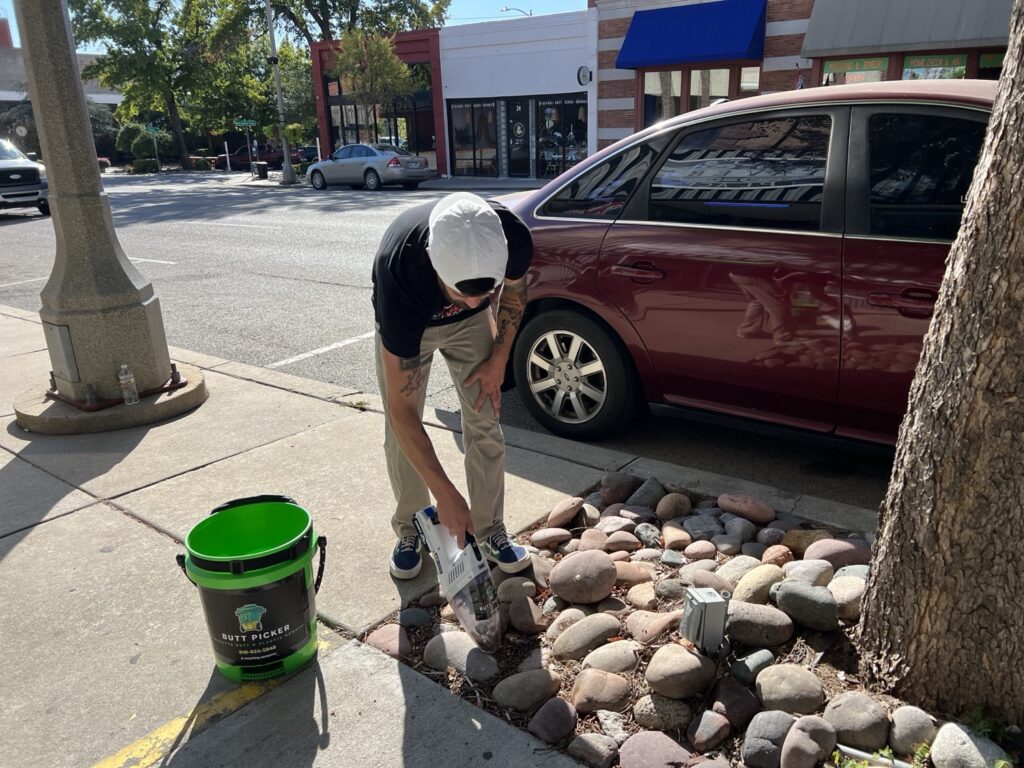
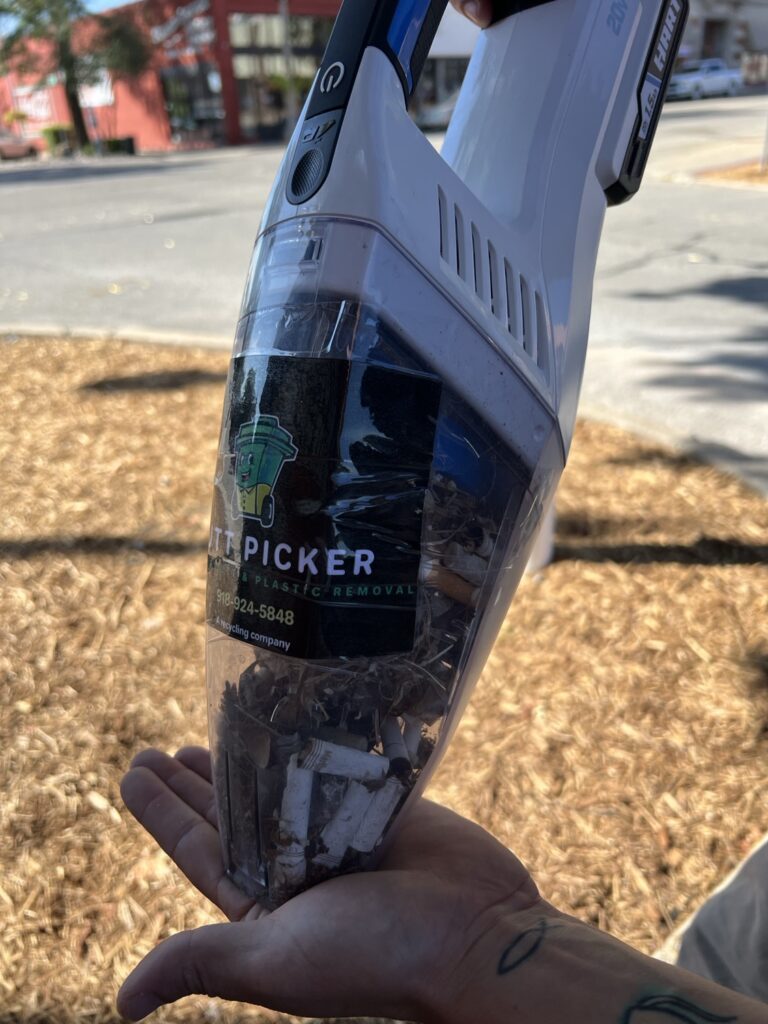
“I’ve had some businesses say, ‘oh we don’t need that, we have a sweeper that gets our cigarettes,’ and really, all they’re doing is cramming those butts into the cracks in the pavement and sidewalks. I call it a butt snake.”
Across the street at another known smoker hangout, we indeed found a “butt snake” as Waltrip dug out the filters laid almost end-to-end in the crack of the sidewalk in various degrees of degradation. The more we looked, the more we found. It became evident that it was a bigger problem than most people realize.
Since starting in July, Waltrip says he’s working hard to help local businesses learn the importance of the service he provides. “If we can just bring more awareness to the problem, we can begin to address it and fix it.”
Businesses can pay Butt Picker a nominal fee to remove cigarette butt litter from their property. Find out more at buttpickerrecycling.com.

